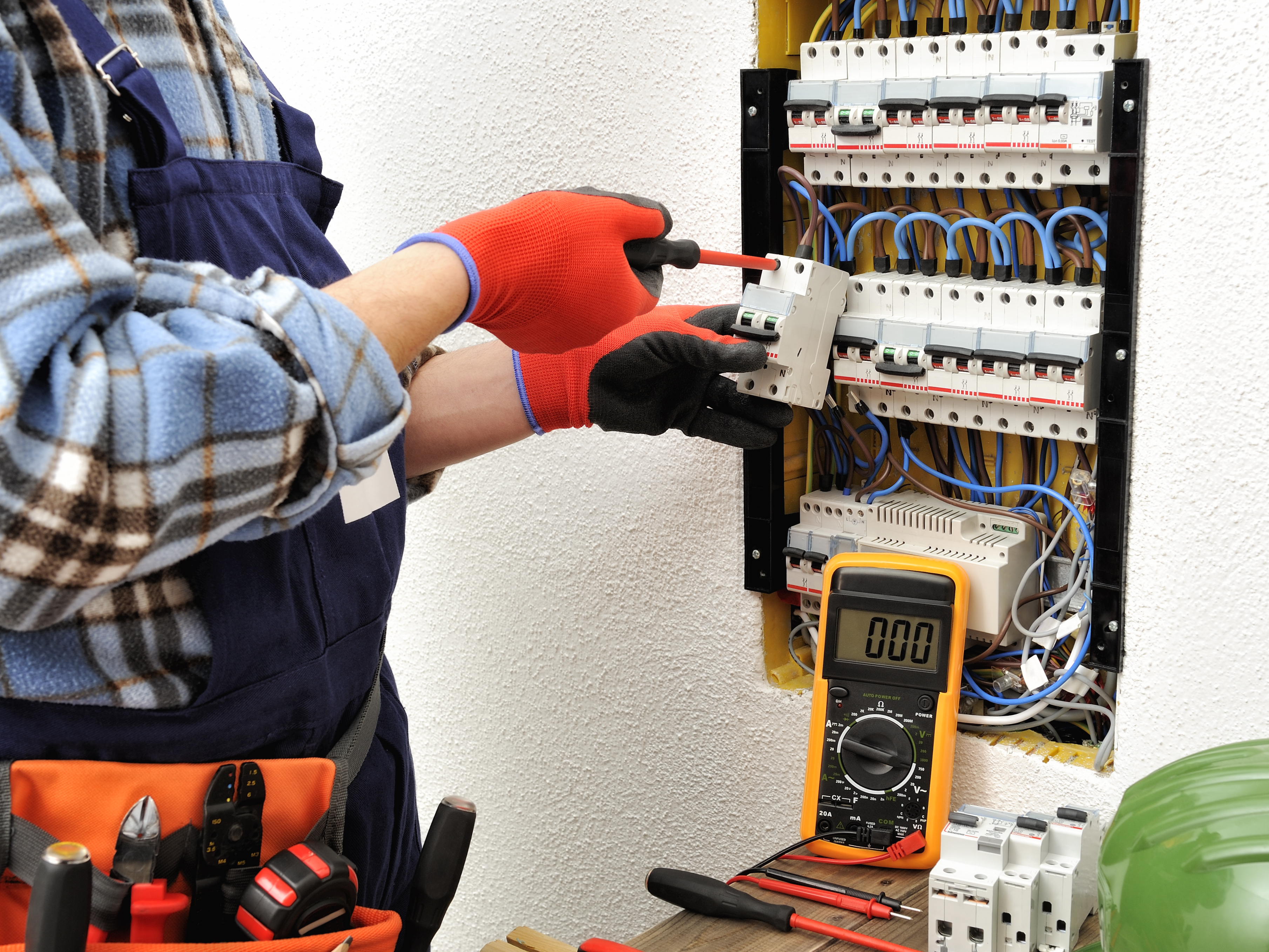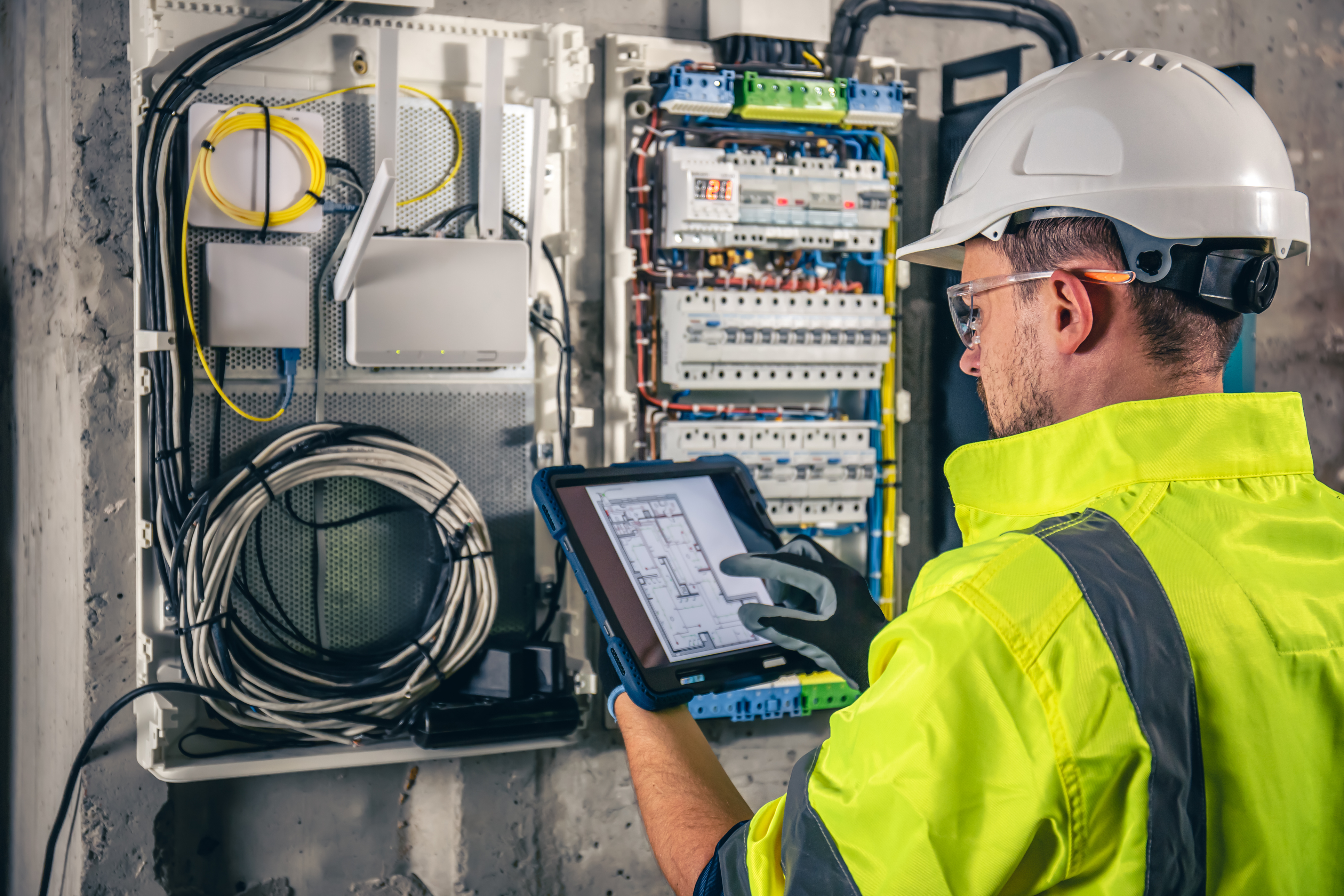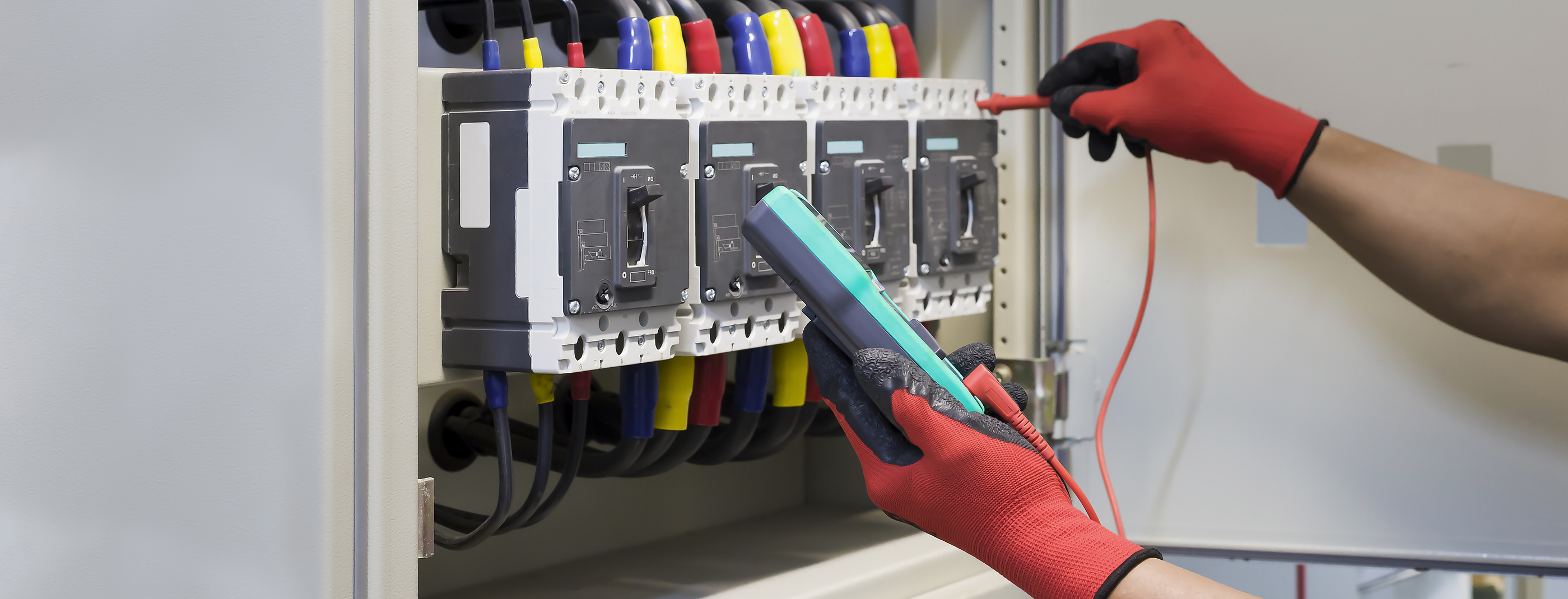How to Be a Successful Electrical Contractor | CraftJack
Success in the electrical business takes discipline, skill, planning, and knowledge. Read CraftJack's tips on how to be a successful electrical contractor.

As the demand for electricians grows, it can be enticing for someone with experience in the field to get into independent contracting. It's an opportunity to be your own boss and have the satisfaction of building and growing your own operation in your own way.
Setting yourself up for entrepreneurial success, however, means thinking hard about what you want to achieve, how much you want to achieve it, and above all, knowing how to plan and execute in ways that will yield sustainable results. Read on for crucial tips on how to be a successful electrical contractor.
Consider joining a proven lead generation website as part of your process. CraftJack can help you find customers and grow your business.
1. Know What You Want & Why
There's an important first step that comes before you set about creating a business plan and preparing to register a company. That step is thinking carefully about why you want to start your own contracting business.
Look Beyond "Being Your Own Boss"
Simply wanting to be your own boss is often the starting point, but owning a business is a major undertaking that demands large investments of time and money with little guarantee of short-term rewards. Going into it with a clear idea of why you want to do this — beyond not wanting to work for someone else — increases the odds of your business surviving a demanding and uncertain launch.
Ask yourself what makes you passionate enough about electrical work to take on the task of building your own company, what specific needs you can satisfy, and what opportunities you're seeing in the marketplace that you're eminently suited to fill. Ask yourself what sacrifices you're willing to make to get your company off the ground and what you're not willing to give up. Make decisions up front about priorities and the things that are truly essential for you to have some work-life balance.
Know Your Strengths & Limitations
Being a skilled electrician doesn't necessarily mean you also have the skills to successfully recruit and manage a team or finance a business and stay on top of its accounting needs. Try to honestly assess the strengths you bring to the endeavor and the areas where you might need the support of a partner or manager. Spreading some of this workload around can remove a major potential brake on growth.
Define What Success & Failure Look Like
Set concrete long-term goals to determine what success looks like to you. Objectives for annual income or achieving a certain level of reputation in your community are good examples. While your goals may change over time, having your original vision in view will give you an idea of whether you're making progress toward realizing the benefits of becoming an electrical contractor. Similarly, have some concrete metrics for knowing when things aren't going the way you want — signs and developments you won't ignore — to provide perspective on whether and when you need to make changes.
2. Look for a Mentor
Once you have a basic idea of what you want to achieve and why and you've committed to becoming a successful electrical contractor, you can give yourself a leg up by finding someone who's running the kind of business you want.
If they're willing to share their knowledge and help you learn from their early mistakes, a mentor can help you find your way far more efficiently than engaging in trial and error on your own. They can answer questions specific to what you want to accomplish, such as "What do electrical contractors do?" in the specialties you want to address, and "How much do those electrical contractors make?"
Mentorship has always been a crucial factor in the electrical sector. Mentors can provide a sounding board for ideas and show their process and hard-won wisdom by example if you shadow them on a job. Formal mentoring programs may be available in your area and accessible through trade organizations, so make sure to explore all your options.
Be prepared to ask questions and seek out networking opportunities. A good mentor can put you in touch with people who can answer the questions they can't or provide different perspectives on how you can successfully realize your own personal style. It's important to engage in this kind of relationship with the same degree of dedication and professionalism you plan to bring to running your company.
3. Create a Business Plan
Once you've done the foundational work of deciding what you want your business to look like and learning from someone with experience in implementing some version of what you want to create, it's time to carry out your vision. This begins with writing a business plan.
Typically, a business plan includes an executive summary — a kind of elevator pitch for what your company will do — a more in-depth company description, and a listing of your short- and long-term goals, both quantifiable and intangible. It also includes a clear description of the services you'll provide and how you'll price them, plus market research to indicate what kinds of demand your company will fulfill and where you fit into your industry. Finally, it includes a budget and financial plan that show cash on hand, potential investors, and what you expect to spend on things like rent, equipment, and sales and marketing.
Generating a business plan means making solid choices about how you want to execute your vision and what your hopes are for growth if your company takes off. Your plan should outline your business at a scale where you don't have more work than you can handle — a situation that can often leave electrical contractors hip-deep in paperwork while their core business falls behind — and you aren't bleeding money to keep up staffing and equipment levels when little work is available.
A business plan is always evolving as a company navigates the choppy waters of everyday reality. You can expect to revisit it periodically as your business grows.
4. Recruit Your Team
It's entirely possible to operate as a solo contractor or a small partnership with just you and a business manager, especially in the early stages of establishing your reputation. Smaller operations come with less overhead, giving you a higher profit margin and allowing you to offer competitive pricing, and are free from the headaches of managing a large staff. If you need more hands than just yours on a job, it's possible to punch above your weight by subcontracting certain tasks.
However, as your business grows and your calendar fills, you may find you're missing out on opportunities due to a lack of workers, especially if potential clients are turning elsewhere to get time-sensitive work done. And subcontracting comes with its own risks, since every time a subcontractor goes to a site on your behalf, you're effectively staking your reputation on their work. If you're on the path to success, all this means there's likely to come a point when you need to staff up and think about how to recruit the right people for your team.
Create an Employee Handbook
Before you start hiring, you need a well-defined set of company policies in place, so brushing up on labor regulations and HR best practices is a must. Defining a set of policies that meets these standards also provides a chance to determine your company's culture. These policies should be clearly communicated, leaving as little as possible to interpretation, and getting everything in writing is a requirement. Protecting both your business and the employees, ensuring everyone has a clear understanding of what's expected, and clearly communicating your values as an electrical contractor are all part of creating an employee handbook.
Establish an Attractive Environment
If you're going to find and retain good electricians, offering attractive pay and benefits is key. Pay rates should factor in the experience of a candidate, their expected workload, where they'll be providing services, and what the prevailing wage is for electricians in your state.
What will attract quality candidates as much as a good paycheck is being able to work for a well-led company that enjoys goodwill from its clients. If you're a leader who's dedicated to supporting the staff and you run a customer-focused business with a reputation for delivering to high standards of quality, your company is likely to be an attractive destination.
Marketing & Networking for Recruitment
There are a number of ways to advertise positions for electricians. One particularly important tool is networking. Staying in touch with colleagues in the industry or talking to your vendors can be a useful way of finding out about people looking for opportunities. You can also post advertisements at trade schools if you're open to apprenticeships or fresh recruits.
Your online presence can also be a major marketing tool. This means more than just putting up job postings on social media, although this is definitely an essential step. It's also important to highlight positive reviews from your customers that demonstrate the reliability and good reputation of your business and to have a website where you can showcase images and testimonials that prospective candidates can find when they research you. These are all useful tools in general marketing and lead generation as well, covered in the section below.
Avoid Favoritism in Hiring
It can be tempting to hire friends and family in the early stages of a contracting business, but most experts will tell you this is a mistake. Close personal ties can come with problematic expectations, such as being able to come in late, go home early, or exercise more authority than appropriate for a specific position. Hiring close acquaintances is possible but best done once you have an established team and a well-developed hiring process.

5. Marketing: How to Be a Successful Electrical Contractor with Plenty of Work
Generating leads and finding work is essential to making money as an electrical contractor. You can bring to bear a multitude of marketing techniques in lead generation, and the more you invest in the process, the more dividends it can pay for your business. While it's worth delving into the subject in detail to learn just how many possibilities are available, here are a few basic fundamentals to keep in mind.
Target Your Marketing
From the early stages of setting up your contracting business, you will have identified the specific kinds of work you want to focus on and put in place the basics of a marketing strategy as part of your business plan. This, in turn, will tell you who your target market is. If you're focused on residential repair and maintenance work, for example, you can target property managers and homeowners. If your focus is on industrial electrical work, on the other hand, you can target facility managers for factories.
Leverage the Power of Networking
Although digital marketing is more important than ever, it's still no substitute for personal relationships. Maintaining friendly relations with other electricians and other kinds of businesses can be invaluable. Even your competitors may refer business to you if you're on good terms with them and they trust your standards and work ethic. Events and conventions can be a great way to keep in touch with colleagues and forge new connections, and you can get your name out in the community by sponsoring everything from trade shows to local sports teams to performing arts organizations.
Keep Up with Reputation Management, Reviews, & Referrals
A contractor's customers are one of their greatest marketing resources. A satisfied customer is more likely to refer other clients to you and post positive online reviews. You may even be able to get them to record a video testimonial for you, which can be a particularly powerful tool for convincing prospects of the level of service you provide. Keep an organized database of customers and stay in touch with them regularly, offering free electrical health checkups to keep them engaged.
No matter how conscientious and skilled you are, it's inevitable that you'll occasionally have to deal with the negative reviews and complaints. Responding promptly and proactively to these on review sites and social media and managing how prospects see your brand is a key part of what's called reputation management.
Invest in Digital Marketing
Digital marketing is a major area of growth for electricians and a primary outlet for lead generation in the modern marketplace. There are several key methods of digital marketing.
Search Engine Optimization
Most prospects start their search for a contractor on Google. Content optimized to rank high in a Google search is called SEO content. This can apply to everything from blogs to websites.
Pay-Per-Click Advertising
Placing paid ads on Google search results related to your business is called pay-per-click advertising and can be a powerful outreach tool.
Website Design
Having an up-to-date home on the web for your business gives prospects an entry point to what you offer and the presentation of your brand. It can be a home for reviews, testimonials, and photographs, as well as an easy way to get in touch with you, book appointments, and access pricing information. A modern website should be easily compatible with mobile devices.
Social Media
Having a social media presence on sites like Instagram and Facebook can be an effective way to reach out to new customers and develop a follower base that's tuned into your news and updates.
Use Your Equipment for Branding
The office and equipment that are part of your operating expenditures can also be a way to establish brand recognition. A well-maintained office can be used for community outreach and open-house events, and a well-maintained vehicle fleet can carry your branding to every job site in style. Combined with well-designed business cards and brochures, these kinds of tangible marketing measures can be effective tools for reinforcing your other marketing efforts.
6. Maintain Healthy Finances
In addition to recruiting and running a top-flight team and implementing an effective marketing strategy, it's also important to make sure your work is priced in tune with the local market, which means knowing exactly what to include in your estimates. This, in turn, is part of the bigger picture of maintaining healthy finances.
Making accurate accounting a priority is a crucial piece of learning how to be a successful electrical contractor. Maintaining the working capital you need, keeping up your operational expenditures and payroll, and staying up to date with your books and taxes are all basics of ensuring a healthy bottom line. If your business is large enough, these things are all important enough to merit hiring or contracting a Certified Public Accountant, particularly at crucial times such as when facing a tax audit.
Financing Your Electrical Business
Loans can provide much-needed flexibility as you work to launch a new company, grow an existing one, or deal with cash flow crunches. It's always a good idea to have someone on your team who has a thorough understanding of the kinds of financing available to you.
Short-term business loans, business lines of credit, and merchant cash advances can help deal with short-term problems, while long-term loans offer more significant amounts at lower interest rates to help reach your longer-term goals. Small Business Administration loans, while they don't offer direct cash, provide very long-term fixed-interest financing.
Of particular interest to contractors is equipment financing, typically a fixed-term loan in which the equipment itself is collateral, which provides a great way to get your workforce up and running with relatively affordable monthly payments. And finally, invoice factoring is a process in which a lender buys back your past-due invoices at a discount to provide you with short-term cash flow, which can be useful when you're waiting on payment for a large contract.
7. Keep Your Standards & Technology Current
Because of the nature of the work, electrical contractors need to have an up-to-date understanding of what it means to be compliant with current safety standards. In fact, it's important for all your employees, not just the electricians, to be trained in electrical safety and dedicated to keeping up a high standard in this area. It's a fundamental part of ensuring safe workplaces and job sites.
A key part of that commitment is making sure that any equipment your workforce is using adheres to the highest quality standards you can afford. Investing in high-quality equipment is relevant to the efficiency and longevity of your tools — cheaper options tend to wear out faster — as well as safeguarding your team's safety and long-term health. Knowing that you have a serious commitment to those goals is a major benefit, in turn, to the morale of your team.
8. Track & Evaluate Your Company's Performance
In order to keep your goals in view and have an accurate sense of your progress, you need to track and periodically analyze your performance. An excellent tool for this purpose is a SWOT Analysis, which stands for Strengths, Weaknesses, Opportunities, and Threats.
Carrying out a SWOT Analysis means gathering perspectives from across your team and brainstorming on the things you do well, the areas where you could improve, opportunities outside your business that are waiting to be acted upon, and obstacles and challenges that could threaten your growth. This analysis should be carried out with your goals and overall vision in mind and can, in turn, become a tool for revisiting and updating your business plan.
Remember Your "Why" As You Work for Success
As you continue to develop your team, build a solid base of clients, and implement marketing and financing plans to bolster your growth, take the time to keep your "why" in view. You don't have to stick slavishly to your original vision, but you should have an idea of how that vision is evolving and why, and whether those changes are creating the kind of company you want. Join CraftJack today for additional lead-generation resources to grow your electrical business.


